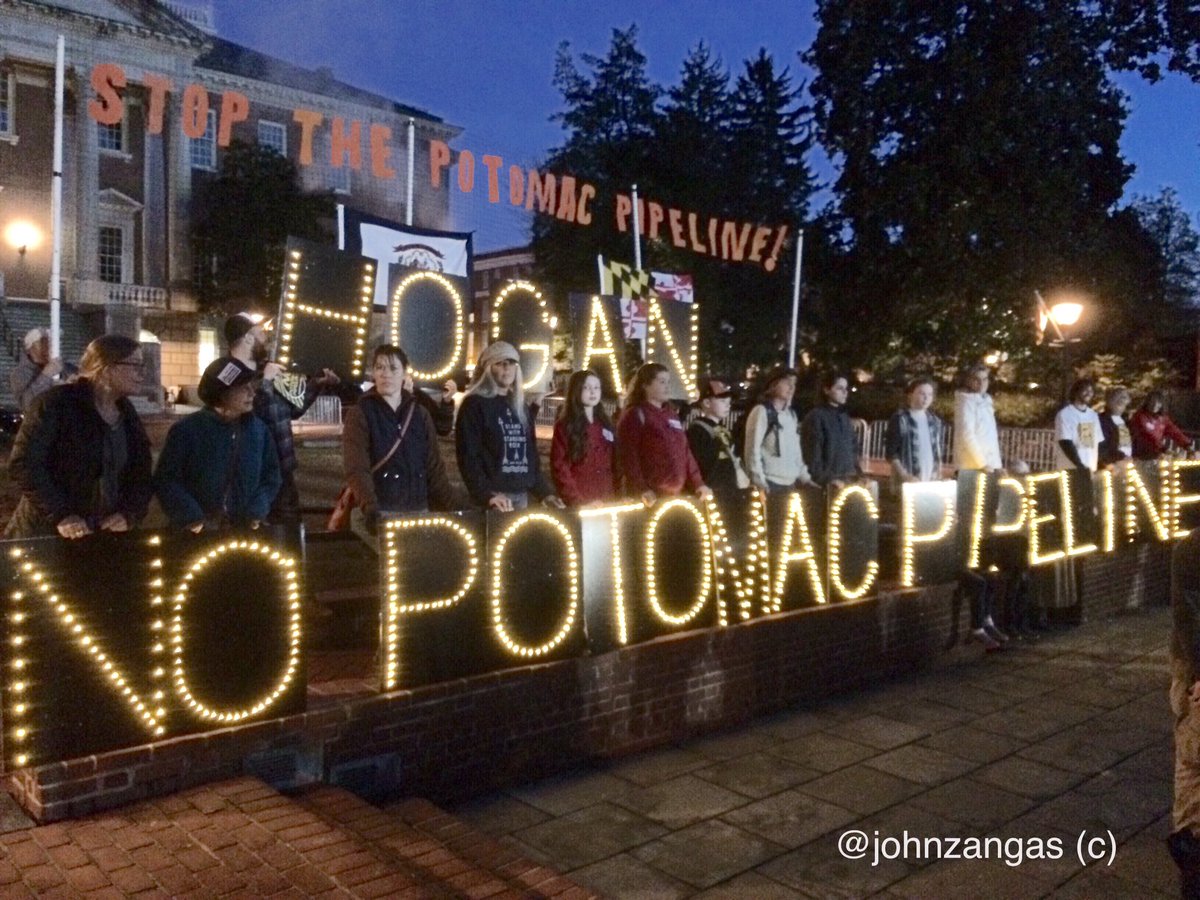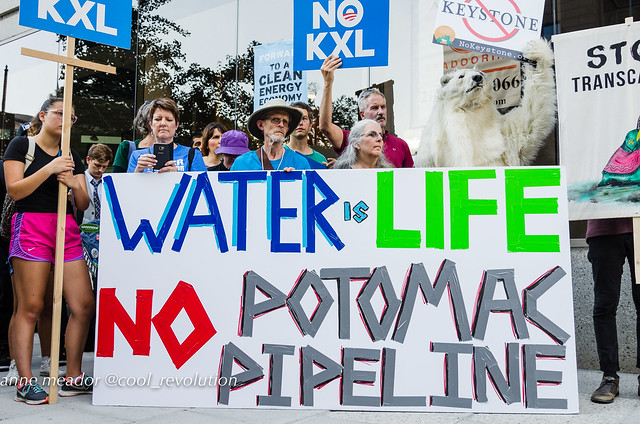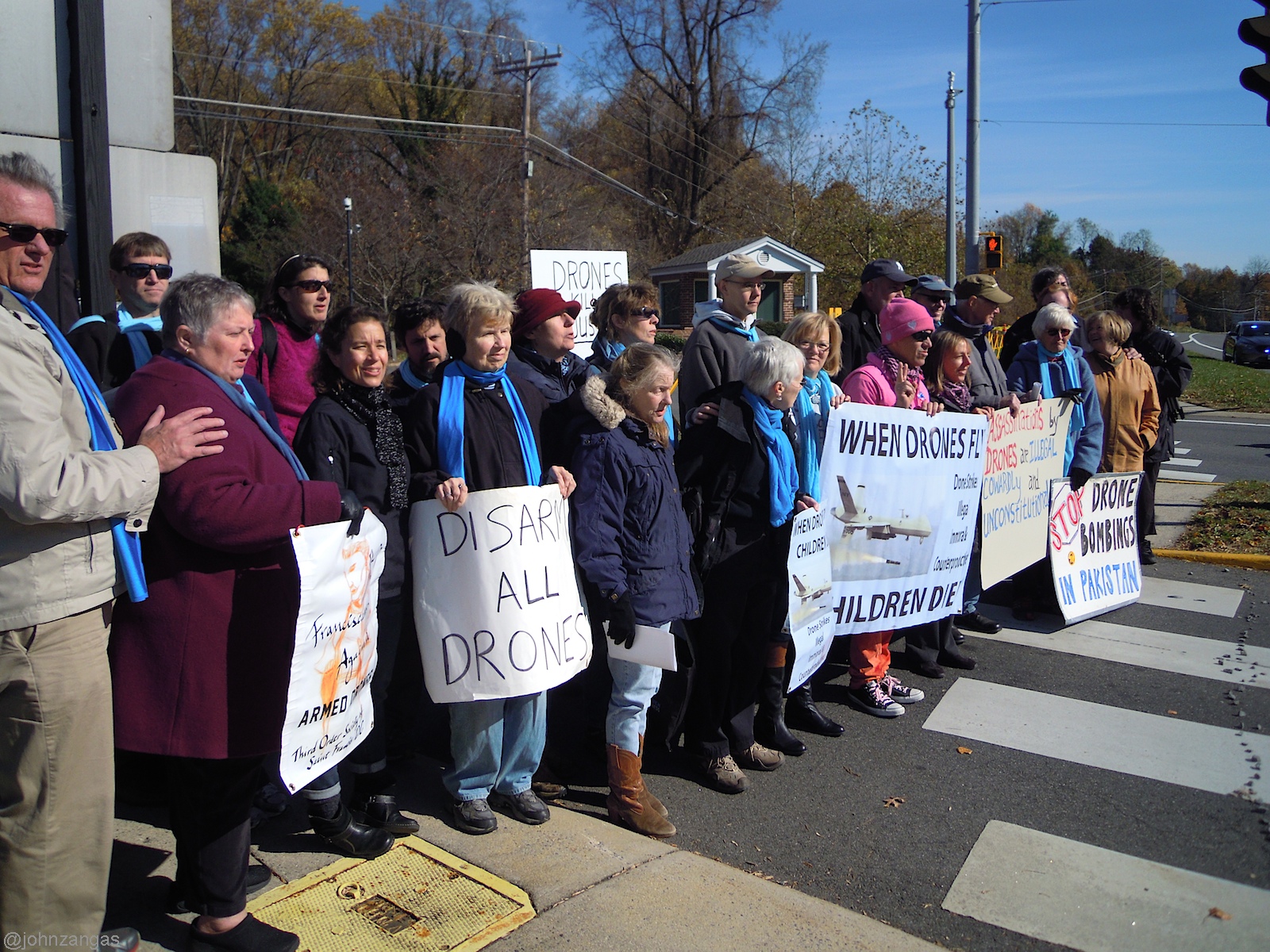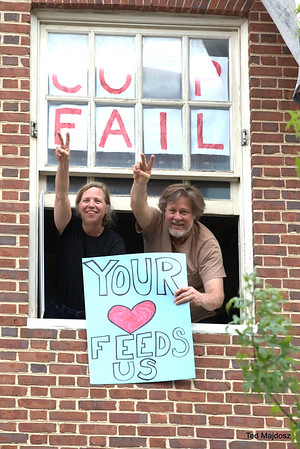A federal court judge today denied Columbia Gas the right to move forward with construction of a gas pipeline through public land in Washington County, Md. The ruling is a blow both to Columbia Gas and to the pipeline’s main intended customer, the Rockwool insulation factory in West Virginia, now under construction.
The TransCanada subsidiary had filed a lawsuit against the state of Maryland in June in U.S. District Court in Baltimore to force access to the Maryland Rail Trail, a necessary piece to construct a 3.7-mile pipeline from Fulton County, Pa., through a thin slice of Maryland. In January, the Maryland Board of Public Works, which included Governor Larry Hogan, denied Columbia Gas an easement.
Columbia Gas’s lawsuit was unusual in that a private company tried to use the power of eminent domain to take public land. It claimed that power by virtue of the permit granted to the project by the Federal Energy Regulatory Commission.
The judge denied Columbia Gas injunctive relief because it found no substantive case, Upper Potomac Riverkeeper Brent Walls said in a statement delivered by live stream after the ruling. Private industry doesn’t have the right to file an eminent domain case against the state of Maryland, the judge found, because the state has sovereign immunity, he said.
Opponents of the pipeline project were jubilant outside the courthouse following the judge’s ruling.
The judge determined that the economic loss to Columbia Gas with a denial of access is insignificant in comparison the loss of sovereignty immunity by the state of Maryland, according to Walls.

The case may have gone forward if the Secretary of the Interior had filed the lawsuit on Columbia Gas’s behalf, the judge said, according to Walls.
The judge has expedited the case the Fourth Circuit Court of Appeals in Virginia, if Columbia Gas chooses to take up an appeal.
The Potomac Pipeline has drawn vociferous protest over the last three years. Environmental groups have objected to the potential risks of drilling under the Potomac River in unstable karst geology using a process requiring millions of gallons of drilling fluid. Community groups in West Virginia have supported landowners who have been adversely affected by the construction of the gas distribution line which would have hooked up to the Potomac Pipeline’s supply. And, over the last year, a new constituency of protest has grown around the intended use for most of the pipeline’s capacity—gas to heat the furnace at the controversial Rockwool factory.
The sands have shifted from the time they started fighting Columbia Gas’s pipeline, from the perspective of Tracy Cannon of Eastern Panhandle Protectors. “Opinion about pipelines is changing—and we will win,” she said.
The judge may agree with them. “This is a new era,” he said, according to the pipeline opponents.
Walls offered his interpretation, saying he believed the judge was referring to the increased build-out of pipelines and the number of battles being fought over them in court.
Maryland’s Attorney General Brian Frosh also indicated that he was pleased with the ruling. “[T]he court has agreed that a private pipeline company cannot force the State to accept a pipeline under the Western Maryland Rail Trail,” said AG Frosh in a press release.“We will continue to defend Maryland’s right to control its public lands against any other efforts by the natural gas industry to move forward with this project.”
The ruling will “have no impact” on the Rockwool facility in Jefferson County, W.Va., since existing pipeline capacity will fulfill its needs, said Michael Zarin, Vice President of Group Communications.
Mountaineer Gas recently constructed an extension of its pipeline into Jefferson County to service Rockwool. The company currently transports a small volume of gas from Virginia to the Eastern Panhandle.






One thought on “Columbia Gas Denied Right to Take Public Land for Potomac Pipeline”